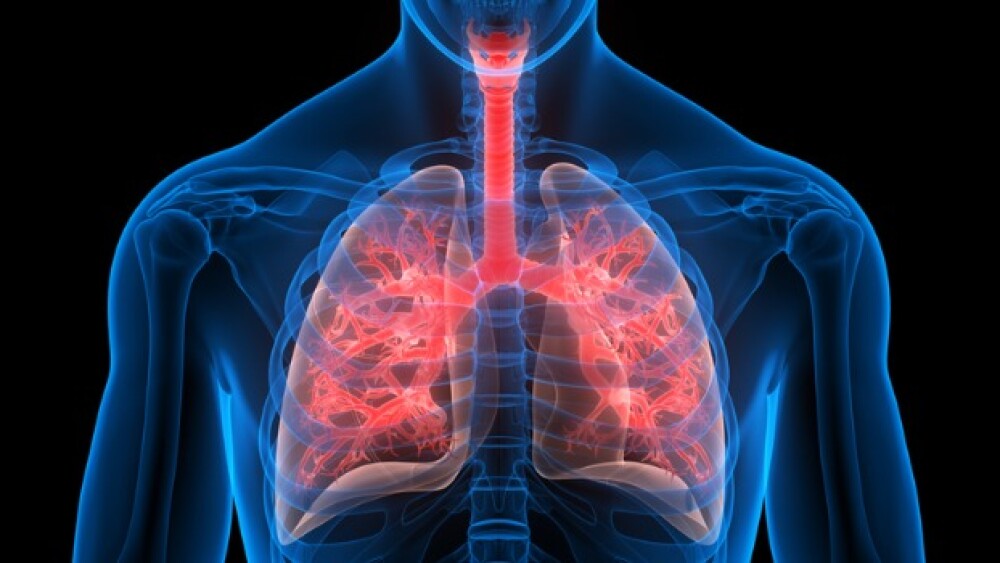AlveoGene has licensed the U.K. Respiratory Gene Therapy Consortium’s InGenuiTy platform for all uses excluding the CTFR gene, which is already licensed to Boehringer Ingelheim for cystic fibrosis.
Pictured: Human lung anatomy concept/iStock, magicmine
Oxford-based biotech AlveoGene launched Thursday with plans to leverage a proprietary platform from the U.K.’s Gene Therapy Consortium to develop inhaled gene therapies for rare respiratory disorders.
With seed funding from Oxford Science Enterprises, alongside other academia venture capital funds, AlveoGene has exclusively licensed the Gene Therapy Consortium’s next-gen lentiviral delivery platform—called InGenuiTy—for the treatment of respiratory diseases with high unmet need. However, use of the CTFR gene is excluded from the deal as Boehringer Ingelheim exercised its option in 2021 to develop the inhaled formulation, which is in the works for cystic fibrosis.
AlveoGene’s first target will be treating Alpha-1 Antitrypsin Deficiency (AATD), one of the most common rare disorders. AATD is inherited and leads to reduced levels of a plasma protein that protects the lungs, leading to increased risk for lung and other diseases. It’s a major genetic risk factor for emphysema.
Current standard-of-care relies on either symptomatic treatment or weekly IV infusions of plasma-derived alpha-1 antitrypsin. The inhaled AATD gene therapy’s design promotes production of the deficient protein and is expected to progress into the clinic over the next two to three years. The condition is highly underdiagnosed, but a recently approved at-home diagnostic test designed by Grifols should expand the treatable population.
AATD won’t be AlveoGene’s only target, however. The InGenuiTy platform will be used to explore other potential treatments for rare respiratory diseases like lung surfactant deficiencies and idiopathic pulmonary fibrosis.
Inhaled gene therapies have been slowly gaining traction as treatments for respiratory diseases. Previously, inhaled therapies have failed to provide solid benefit for patients as the mucus barrier of the airway proved tough to permeate.
More recent approaches seem to have found a way to overcome that hurdle. One of the most advanced approaches currently in human trials is 4D Molecular’s gene therapy for cystic fibrosis. This summer, an update on the first three patients treated with 4D-710 showed improved lung function even in the sickest patient, as well as quality of life benefits. Earlier trial data demonstrated the inhaled therapy had successfully delivered the CFTR gene.
Many gene therapies rely on viral vectors, which can lead to immune system responses and are therefore limited in repeating doses. However, the InGenuiTy platform utilizes lentivrial delivery, which produces a long duration of action and can have repeated administration, according to AlveoGene.
The new biotech will be led by biotech veteran David Hipkiss, formerly led Prosonix, a respiratory medicine company, as well as Enesi Pharma as CEO.
Kate Goodwin is a freelance life science writer based in Des Moines, Iowa. She can be reached at kate.goodwin@biospace.com and on LinkedIn.






